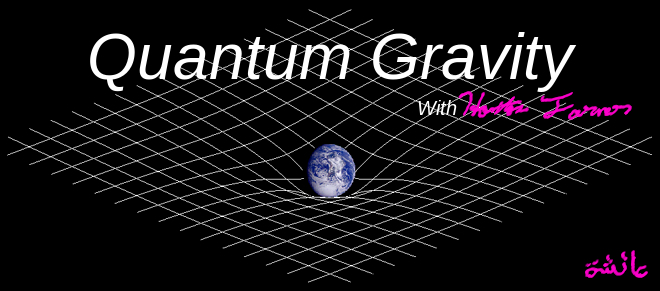It seems that one Toby Cubitt, a quantum physicist, has done research which proves mathematically that physics is hard. Well no duh. Physics is the subject sane people avoid in college. Compare the conceptual complexity of Louis DeBroglie's work on the wave nature of "solid" material particles to a study of Dr. Shaquille O'Neal Ed.D. on how bosses use humor in the workplace.
Toby Cubitt's work is entitled "Extracting dynamical equations from experimental data is NP-hard". To understand it one needs to understand a bit of mathematical complexity theory. Which I do not. Basically a new problem is NP hard if it cannot be reduced to a set of instructions that a computer can solve it.
From the perspective of a theoretical physicist, let me explain the difference between what I do and what a computer does. Both a computer and I do a great deal of math. What I do that a computer* currently cannot is think of ways to recast a problem so that it can be done. The best known example of this is taking a problem which is written in terms of calculus and instead making it a problem in terms of the algebra of a group of matrices. Another would be using generalized coordinates to write the physics of a problem instead of standard Cartesian, rectangular (x,y,z) coordinates. Computers cannot even take those steps unless they are programmed by a human to take them.
The real difficulty comes when one is presented with a set of data and told to find a pattern. That is the nature of my latest project. I was given a set of data from a blind survey of class II methanol astrophysical masers (like lasers but they radiate in the microwave spectrum). From this I have been able to find a tentative, empirical formula which can give the age of a star forming region based on it's contents. A computer can organize and perform tedious calculations on the data. I used a computer to do just these things. However a computer cannot imagine how the seemingly random mess of pre-stellar objects found in these regions tell us how old they are.
Being able to see patterns in a random looking scatter of data. Knowing what questions to ask to do the research to find the data. Lastly being able to find the underlying principles behind the physical processes. That is what makes physics hard. That is why I like to do it.
No offense to other scholars. But physical science, chemistry, engineering, etc... are all hard. The difference between these and other creative pursuits is that in the end there is a hard and fast right and wrong answer.
*At least not the computers we have now. These are basically a glorified adding machine. Some sort of complex artificial neural network may someday have the power to actually be creative.
UPDATE:
A challenge which if a computer can equal these task will have proven that they can do actual physics. This involves thinking in the way which theoretical physicists actually do when considering unknown problems.
The reward will be more than proving me wrong, I Hontas F. Farmer (not science 2.0 or Ion publications this is all me) will do my best to get someone to pay the team that does this 1 million dollars.
1.) THE PROBLEM OF SCHRODINGER'S CAT.
Construct a device which when triggered by the radioactive decay of a lump of an unknown radioactive material releases a fatal poison gas. Then enclose the device, and a cute kitty cat int a airtight, soundproof box fixed in such a way that the cats movement cannot be known. Yet the cat has air, food and water life support. The only thing that can kill the cat is the device that will trigger if/when that unknown material decay's.
Then ask the computer these questions. Is that cat in the box dead or alive? What physically happens when we open the box and observe the state of the cat.
The computer can have nothing in it's memory bank except classical physics and biology enough to understand that poison will kill a cat.
The test will have been passed if the computer can come up with a novel interpretation of quantum mechanics.
2.) Ask the computer this question.
Given all known physical data and the standard model of particle physics and General Relativity (and the known exact solutions to Einstein's equations) what happened before the big bang?
This second question may sound broad and ridiculous but it's exactly the kind of thing that theoretical physicist think about.
3.)Have the computer design an experiment to test it's answer in number 2.
If anyone can get a computer to do this they will probably get the Nobel Prize for that year. Prove me wrong. I think it will look allot like this an not be very satisfying.
Physics is hard. No Duh?





Comments